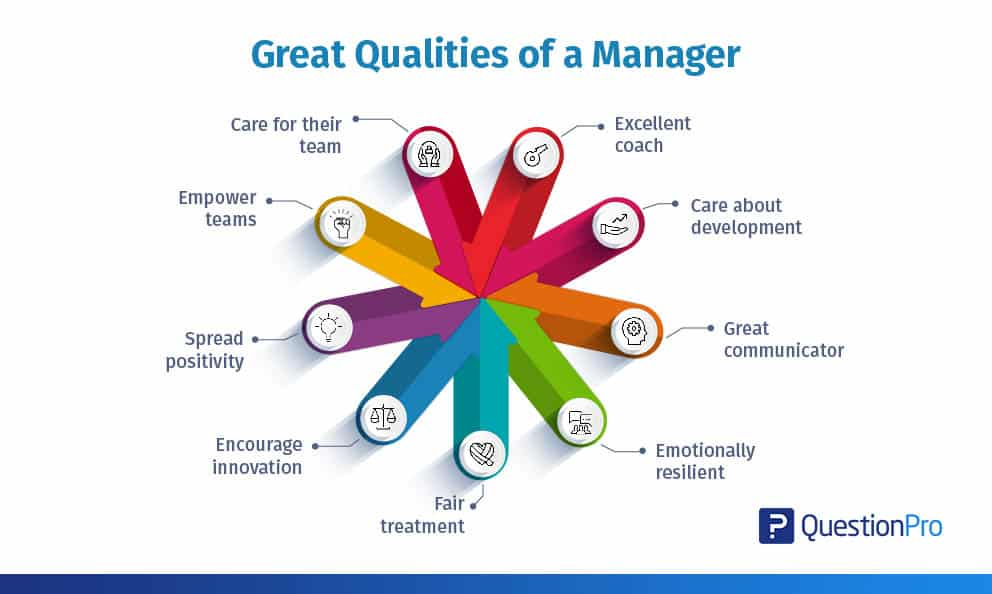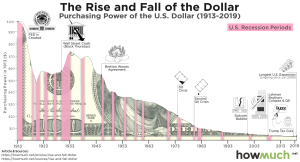When assessing the qualities of effective managers, it becomes clear that the essence of good management skills lies in the ability to foster a supportive team environment and drive productivity. Effective managers leverage predictive management traits such as emotional intelligence, strategic thinking, and adaptability to enhance team dynamics and performance. Moreover, they utilize an analytical management approach, employing data and metrics to make informed decisions and allocate resources efficiently. However, many organizations fall into the trap of manager selection methods that prioritize superficial qualities over proven performance indicators. By understanding the nuances of leadership effectiveness, companies can ensure they deploy the right individuals in management roles, ultimately leading to enhanced outcomes.
Exploring the attributes of competent leaders and strategists reveals that strong managerial effectiveness hinges upon a blend of interpersonal finesse and analytical prowess. Recognized by various terms—including supervisory excellence, organizational leadership, and effective administration—these qualities are vital for guiding teams through complexities and challenges. The need for selecting strong leaders goes beyond mere preferences; it demands a focus on measurable qualities, such as decision-making capabilities and emotional acuity. Companies that refine their approach to identifying managerial talent can elevate their overall performance, yielding a competitive edge in today’s fast-paced market. Ultimately, effective leadership is less about aspiration and more about aligning skills with the intricacies of team dynamics.
The Essential Qualities of Effective Managers
Effective managers exhibit a unique blend of qualities that are vital for fostering a productive work environment. First and foremost, interpersonal skills are paramount; managers must cultivate psychological safety within their teams. This means encouraging open communication and allowing team members to feel secure enough to share their ideas and feedback without fear of repercussion. Such an environment not only boosts morale but also enhances overall productivity, as employees are more likely to engage meaningfully under supportive leadership.
In addition to strong interpersonal skills, analytical abilities play a crucial role in effective management. Managers must be adept at evaluating situations, making informed decisions, and reassessing strategies as necessary. This analytical management approach enables leaders to understand their team’s dynamics and optimize performance. Ultimately, recognizing and honing these qualities can vastly improve leadership effectiveness, leading to organizations that not only meet their goals but exceed them.
Predictive Management Traits That Drive Success
Research suggests that certain predictive management traits are more effective than traditional metrics, such as age or experience, in determining successful leaders. The study by David Deming and his co-authors highlights that general intelligence, particularly as measured by cognitive assessments, significantly correlates with management success. Understanding how to allocate resources effectively and utilize critical thinking skills are key predictive traits that reflect a manager’s potential for success. Organizations that prioritize these traits during their manager selection methods can gain significant advantages.
Moreover, the ability to make sound economic decisions under pressure is equally essential. Managers who excel in resource allocation are crucial for steering teams towards success. These predictive management traits align closely with the responsibilities of a manager, suggesting that companies that adopt analytical approaches to hiring will likely foster environments where effective management can flourish. By marrying these traits with strategic hiring practices, organizations will position themselves for greater effectiveness and sustainability.
Understanding Good Management Skills
Good management skills encompass a range of competencies that contribute to a leader’s effectiveness. High emotional intelligence, for instance, allows managers to connect with their team members, understand their motivations, and navigate interpersonal dynamics with finesse. This emotional awareness is an integral part of developing trust and collaboration within a team. Furthermore, strong communication skills are imperative; managers must articulate their vision clearly and provide constructive feedback in a manner that motivates and inspires their teams.
In addition to emotional and communication skills, good management also involves strategic planning and organizational abilities. Effective managers can set clear goals, define team roles, delegate tasks efficiently, and monitor progress to ensure that objectives are met. By honing these skills, managers can not only improve team productivity but also contribute significantly to the overall success of the organization. Therefore, investing in the development of these good management skills is essential for cultivating effective leaders.
Manager Selection Methods for Optimizing Performance
Choosing the right method for manager selection can dramatically impact organizational performance. Traditional selection processes often rely on subjective measures like personality traits or years of experience, which may not accurately reflect a candidate’s capabilities. Instead, organizations should consider incorporating scientific methods, such as cognitive assessments and simulations, that directly measure the skills necessary for effective management. This analytical approach not only enhances the accuracy of manager selection but can also identify potential leaders who may otherwise be overlooked.
Furthermore, using structured interviews along with performance-based assessments can offer insights into how prospective managers might handle real-life challenges in the workplace. By focusing on predictive traits—like decision-making skills and the ability to inspire teams—companies can create a robust pool of management candidates who are equipped to lead effectively. These refined manager selection methods, grounded in empirical evidence, will elevate organizational performance and drive future success.
Fostering Leadership Effectiveness Through Training and Assessment
Fostering leadership effectiveness requires a commitment to ongoing development and assessment of managerial skills. Training programs tailored to enhance both interpersonal and analytical competencies are vital for preparing managers to adapt to various challenges. Providing opportunities for real-world practice, such as case studies and role-playing scenarios, can greatly enrich the learning experience and equip aspiring leaders with the necessary tools to succeed.
Additionally, regular evaluations and feedback mechanisms can help ensure that managers are continuously improving their leadership skills. Metrics that account for team performance and employee satisfaction provide valuable insights into management effectiveness. By prioritizing such training and assessment initiatives, organizations can cultivate a culture of effective leadership that drives organizational success and enhances employee engagement.
The Role of Analytical Management Approach in Leadership
An analytical management approach emphasizes data-driven decision-making, providing leaders with the insights needed to make informed choices. This method requires managers to critically assess the context within which their team operates, identifying underlying issues and opportunities. Through the lens of analysis, managers can not only execute strategies more efficiently but also innovate solutions tailored to their team’s unique challenges.
Furthermore, integrating an analytical mindset into management practices encourages continuous improvement and adaptability. Leaders who adopt this approach are better positioned to respond to changing market conditions and team dynamics, ultimately fostering a more responsive organizational culture. As such, promoting an analytical management approach should be seen as a cornerstone of developing effective leaders and achieving sustainable success within organizations.
The Impact of Overconfidence on Manager Effectiveness
Overconfidence can severely undermine a manager’s effectiveness, as evidenced by recent research indicating that individuals who are overly self-assured in their leadership capabilities often perform poorly. This tendency is particularly problematic during manager selection, where organizations may inadvertently promote individuals based on their expressed desire to lead, rather than on proven ability. Such overconfidence can lead to decision-making pitfalls, where leaders misjudge team dynamics or underestimate the complexities of their roles.
To mitigate the influence of overconfidence in management, companies should develop comprehensive evaluation mechanisms that focus on demonstrable skills and outcomes. By emphasizing evidence-based performance metrics, organizations can shift the focus from subjective self-assessments to objective measures of managerial effectiveness. This not only enhances the reliability of the manager selection process but also cultivates a culture where leaders are grounded in reality, boosting overall team and organizational performance.
The Importance of Communication Skills in Management
Communication skills are a cornerstone of effective management, influencing everything from team dynamics to project outcomes. Good managers utilize clear, concise, and empathetic communication to bridge gaps between team requirements and organizational objectives. This skill set enables leaders to foster an open dialogue with their teams, ensuring that feedback flows both ways and that every employee feels heard. As a result, communication not only builds trust but also cultivates an environment ripe for collaboration and innovation.
Furthermore, the ability to adapt one’s communication style to various situations is critical. Managers must often tailor their approach based on the team dynamics and the specific needs of different individuals. By being flexible and responsive in their communication, leaders can address diverse perspectives and concerns, ultimately guiding their teams toward shared objectives more effectively. Masters of communication, therefore, are indispensable in navigating the complexities of organizational leadership.
Enhancing Management Skills Through Continuous Learning
Continuous learning is vital for enhancing management skills, enabling leaders to stay relevant in an increasingly dynamic corporate landscape. By investing in professional development opportunities, such as workshops, seminars, and further education, managers can acquire new tools and insights that bolster their effectiveness. Moreover, fostering a culture of learning within the organization encourages employees at all levels to pursue growth, thereby enhancing overall team performance and adaptability.
In addition to formal education, managers can benefit greatly from mentorship and peer feedback. Engaging with other experienced leaders provides invaluable perspectives that can refine their own management styles. By creating environments where ongoing learning is prioritized, organizations can develop a pipeline of effective and innovative leaders ready to meet future challenges head-on.
Frequently Asked Questions
What are the essential qualities of effective managers?
Effective managers possess a blend of interpersonal and analytical skills. They must excel in communication, creating psychological safety for their teams while providing constructive feedback. Additionally, they demonstrate strategic vision and are open to reassessing their approaches, which are critical traits in good management skills.
How do predictive management traits influence the selection of managers?
Predictive management traits, such as problem-solving ability and emotional intelligence, play a crucial role in identifying effective managers. Organizations that focus on these traits, rather than superficial characteristics, are more likely to select leaders who can successfully motivate and guide their teams.
What methods can be used for manager selection based on qualities of effective managers?
To enhance manager selection methods, organizations should employ assessments that measure cognitive abilities and economic-decision-making skills. This analytical management approach allows firms to identify individuals who can allocate resources effectively and show promise in a leadership context.
Why is leadership effectiveness tied to management qualities?
Leadership effectiveness is directly related to the qualities of effective managers. Managers who possess strong communication skills, strategic vision, and the ability to foster a supportive environment are better at leading teams, which increases overall organizational success.
What are the consequences of poor manager selection in organizations?
Poor manager selection can lead to decreased team morale, reduced productivity, and higher employee turnover. Organizations that rely on good management skills and predictive management traits are less likely to experience these negative outcomes, ultimately improving their performance.
How can organizations improve leadership effectiveness through analytical management approaches?
Organizations can enhance leadership effectiveness by adopting analytical management approaches that focus on measurable skills rather than subjective traits. By utilizing evidence-based practices in manager selection, companies can better identify individuals who will excel in leadership roles.
What is the role of psychological safety in effective management?
Psychological safety is crucial for effective management, as it allows team members to feel secure enough to share ideas and constructive feedback without fear. This quality helps maintain an open dialogue and fosters collaboration, thereby enhancing overall team performance.
What are the common traits of poorly performing managers in organizations?
Poorly performing managers often exhibit overconfidence, lack of effective communication skills, and an inability to assess their team’s strengths and weaknesses accurately. These traits can hinder leadership effectiveness and prevent teams from achieving optimal results.
How can companies measure good management skills effectively?
Companies can measure good management skills by implementing structured assessments that evaluate decision-making ability and problem-solving skills in realistic scenarios. This scientific approach helps organizations identify effective managers based on demonstrable competencies.
What impact does the selection of managers have on organizational success?
The selection of managers significantly impacts organizational success, as effective leaders can drive team performance, enhance morale, and facilitate innovation. By prioritizing qualities of effective managers in their selection processes, organizations position themselves for long-term success.
| Quality | Description |
|---|---|
| Relational Skills | Ability to create psychological safety and relate to team members. |
| Communication Skills | Understanding the nuances of delivering feedback effectively to different team members. |
| Analytical Skills | Ability to reassess team dynamics and improve organizational effectiveness. |
| Strategic Vision | Having a clear vision of the organization’s goals and how to achieve them. |
| Decision-Making Skills | Economic-decision-making ability to allocate resources effectively under constraints. |
Summary
The qualities of effective managers are pivotal for an organization’s success. Effective managers embody a blend of relational, communication, analytical, and strategic skills that enable them to guide teams towards achieving organizational goals. Through the application of scientific methods to identify and select managers based on their abilities, organizations can vastly improve productivity and workplace dynamics.




